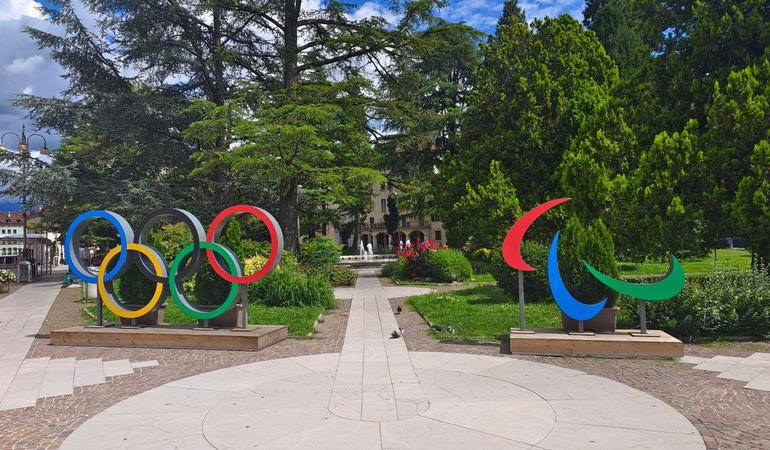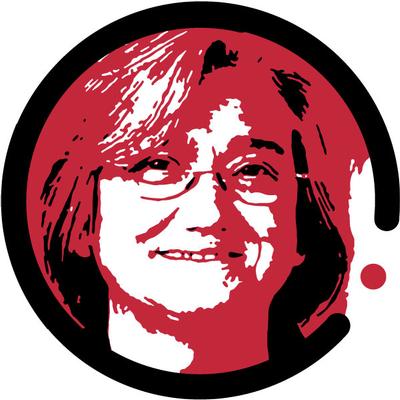
Milano-Cortina. Ecco come verranno spesi i 450 milioni di euro delle paralimpiadi


6 giugno 2024
"Just write Giorgia, call me Giorgia. Not Prime Minister or Meloni, call me GIORGIA. Because I am and always will be one of you, one of the people'. When the President of the Council or as she prefers THE President of the Council used these words I immediately thought of a very clever electoral stunt. Why hadn't someone like me ever thought of it to simply write Rosy? It's even shorter than Giorgia!
A second later, however, I remembered Alcide De Gasperi, who from time to time liked to sign himself quidam de populo (one of the people, ed.), especially in serious moments for the community that was entrusted to his leadership. And I went to reread an article that the young Vittorio Bachelet wrote about De Gasperi for the magazine Civitas in 1954, entitled precisely "Quidam de populo".
Bachelet wrote: "Perhaps his sense of the State that everyone recognised in him, was born precisely from belonging to the community of his own... and it was from his ability to draw strength from the moral contact established between the statesman and the common man that everyone recognised in him an example of human coherence, of reasonableness, of a concrete sense of the possible and the just".
He continued: 'And it is singular that this contact was established despite, perhaps, indeed, precisely because of the lack of any demagogy in his action and in his words: because he was by democratic conviction, by temperament by spiritual formation the anti-dictator, the man who appealed not so much to sentiment as to reason and deep moral convictions and shunned any position of super-man [....] he did not pretend to write a page of history every day with his own hand [...] so he was against any myth: of people, of ideas, of methods, of solutions [...] The denial of any mythicisation, of any Caesarism, of any Übermensch attitude and trust in the reasonableness of ordinary men and women led him to serve the real and possible good of his people.
In Italy politicians want to punish environmentalists with disproportionate sentences
The democratic leader draws from belonging to his people the nourishment to serve them, because he listens to them, he respects their plural articulation, their differences
I wanted to use this lengthy quotation to remind myself first of all of the distance between a democratic and a populist leadership that emerges in the difference between De Gasperi's 'quidam de populo' and the 'just call me Giorgia because I am one of you' of leader Meloni.
The democratic leader draws from belonging to his people the nourishment to serve them, because he listens to them, he respects their plural articulation, their differences, he feels the great responsibility to represent them and to make choices in their name, for their good, with discipline and honour. He knows that he must return from time to time to the community of his own because the responsibility entrusted to him no longer allows him to do so. As a leader, he must be in the home of all, where the institutions are based. His strength lies in his ability to combine belonging to his people with a sense of statehood and to carry the weight of this constant tension between being one of the people and never presuming to be the people.
The populist leader, on the other hand, does not accept to live with the weight of this tension because he presumes to be the people. The people are me, I am the people, is his motto. In this identification lies the strongest deception because, as the people, the leader is not obliged to listen to the people, it is the people who must listen to him, because in the person of the leader all differences are summed up and annulled.
Conclusion: the sovereignty of the people is annulled in the exercise of sovereignty by the leader, who transforms the sovereign people into the sovereign's people.
Freedom of the press is increasingly threatened in Italy
I would like to grasp the difference between the Prime Minister who after the World War II participated in the writing of the Constitution, representing Italy at the Paris conference to redeem our country from the shame of fascism, who was among the founders of the European Community, and the first female Prime Minister who places at the centre of her mandate a reform of the Constitution that, in fact, through the direct election of the premier, consecrates a populist form of leadership, a president who wants to transform Übermensch , which the founding fathers wanted to be federal, into the Europe of the homelands coveted by the nationalists of yesterday and the sovereignists of today.
It all adds up, we might add, even in the difference between 'those who did not pretend to write a page of history every day with their own hand' and those who pretend to rewrite the history of Italy and Europe by stubbornly not recognising the anti-fascist nature of the Constitution and the Republic. Even denying the neo-fascist matrix of the massacres of the 1970s and 1980s. It all comes back to the difference between those who shun any form of Caesarism by signing themselves quidam de populo and those who declare themselves one of the people in order to concentrate on themselves every power, every attention, every unit of measurement.
We will be forgiven a little nostalgia for a mild, and for this reason authoritative, politics of distant times, of men and women we would like to be contemporary, because the overbearing and unloved politics of our time risks destroying what has been built with hard work and commitment by the generations that preceded us.
La tua donazione ci servirà a mantenere il sito accessibile a tutti
La tua donazione ci servirà a mantenere il sito accessibile a tutti